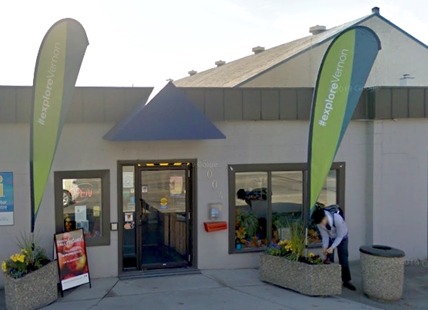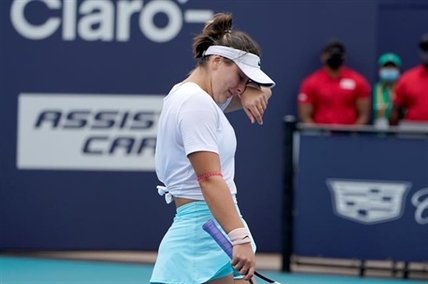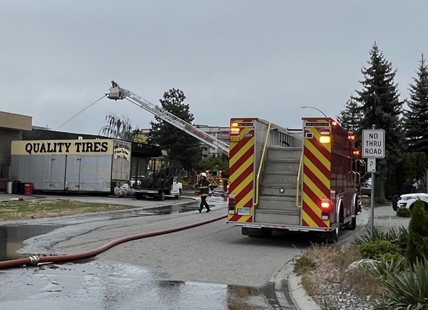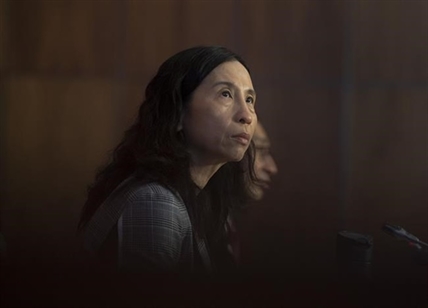B.C.'s top health officer wants you to be COVID safe for Christmas
The highly contagious Omicron variant of COVID-19 means everyone has to take extra precautions against its spread, provincial health officer Dr. Bonnie Henry said during a Christmas Eve news briefing today, Dec. 24. “It is more highly infectious than any of the variants of the virus...
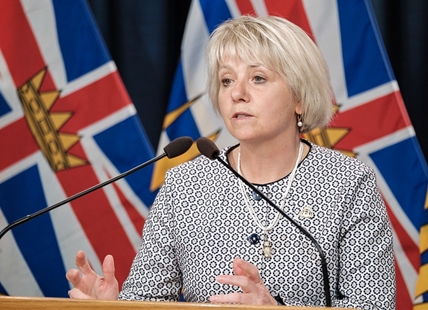
The highly contagious Omicron variant of COVID-19 means everyone has to take extra precautions against its spread, provincial health officer Dr. Bonnie Henry said during a Christmas Eve news briefing today, Dec. 24.
“It is more highly infectious than any of the variants of the virus we have seen,” she said. “If you have any symptoms at all, you must assume you have COVID and you must take measures.”
Even if people think they have a slight cold or flu they should stay away from others. If they’re vaccinated and have symptoms, they need to isolate for five days. That increases to 10 days for those who are not vaccinated.
Omicron can spread with smaller droplets than previous variants of COVID so it transmits more easily.
The incubation time – the time between getting COVID and getting sick and being able to transmit it – is now two to three days when it was five to seven days earlier.
That means people can spread the disease before they get sick. It also means contact tracers can’t get to all the people an infected person may have come into contact with so they should inform those contacts themselves.
READ MORE: Why B.C.'s top health officer expanded COVID restrictions in fight against Omicron
Wearing masks is more important than ever in limiting the spread of Omicron and, people going into crowded places may want to upgrade to a medical quality or N95 mask, Dr. Henry advised.
There were 2,046 COVID cases reported yesterday yet only 975 cases of the Omicron variant have been detected in B.C. to date.
“We are seeing that the percentage of cases on a day by day basis that are Omicron, compared to Delta, is rapidly rising and it’s over 50% now and we expect it to be the dominant strain this week,” Dr. Henry said.
It takes several days for the gnome testing for Omicron to be done so the number of cases found in B.C. is expected to increase dramatically as those test results come in.
What is not known is how seriously ill Omicron will make people.
While studies in other countries seem to indicate that it’s less serious than the Delta variant, most of the cases in B.C. have been in younger, fully vaccinated people. Those two factors lessen the severity of the illness.
As Omicron spreads to older people, that may change.
The increasing spread of Omicron is overwhelming the testing sites. The province only has the capacity to perform 20,000 of the most accurate PCR tests each day and did 20,133 yesterday.
That means people should only go to those testing sites if they have symptoms. In busy areas like the Lower Mainland and Vancouver Island where there are long lineups, people are being triaged for the PCR test and those at lower risk may be given rapid tests.
Out of the 20,133 tests given yesterday, 2,046 people tested positive. That equals a “test positivity” rate of 10% of people who got tested actually had COVID. Before Omicron arrived earlier this month, that rate was about 2%.
To contact a reporter for this story, email Rob Munro or call 250-808-0143 or email the editor. You can also submit photos, videos or news tips to the newsroom and be entered to win a monthly prize draw.
We welcome your comments and opinions on our stories but play nice. We won't censor or delete comments unless they contain off-topic statements or links, unnecessary vulgarity, false facts, spam or obviously fake profiles. If you have any concerns about what you see in comments, email the editor in the link above.

 Valandos
Valandos 









